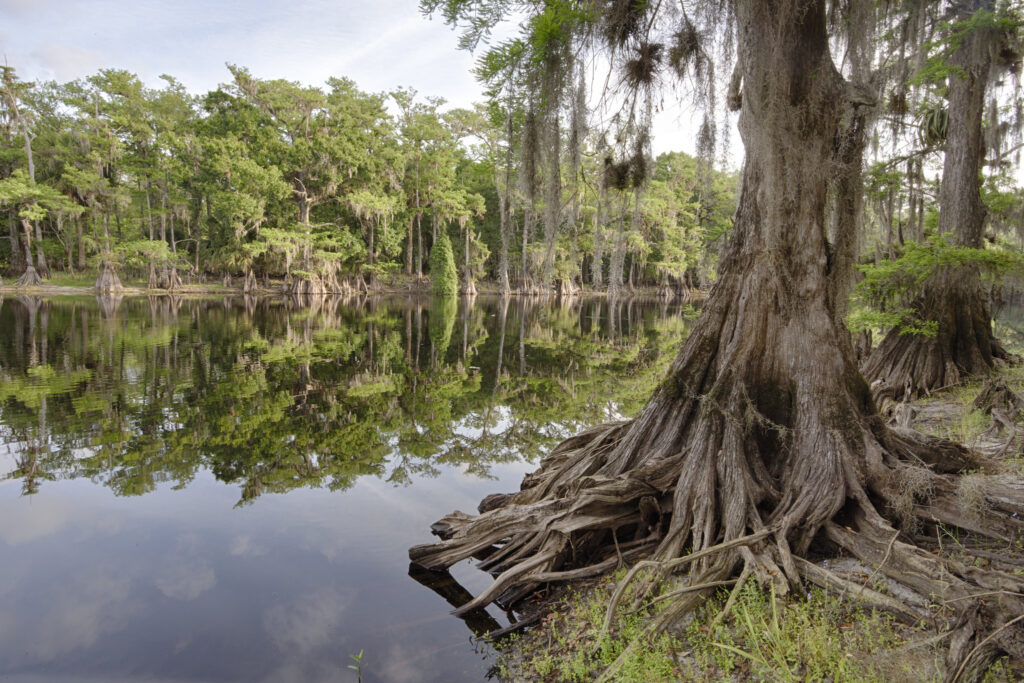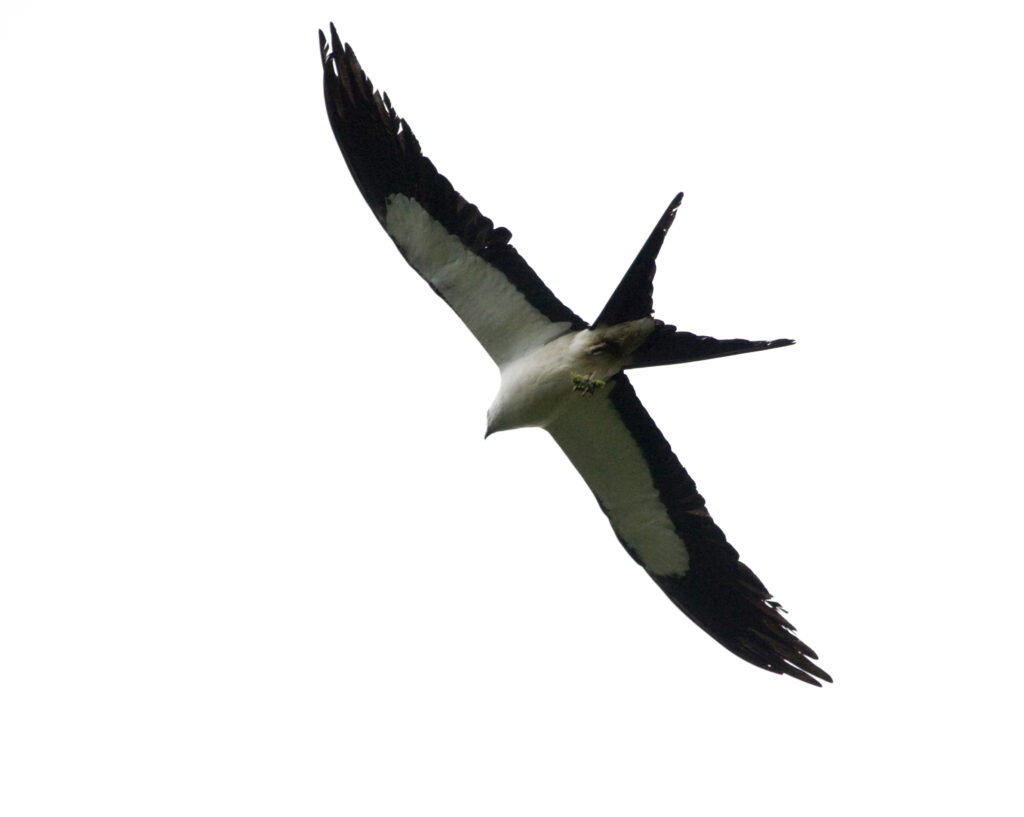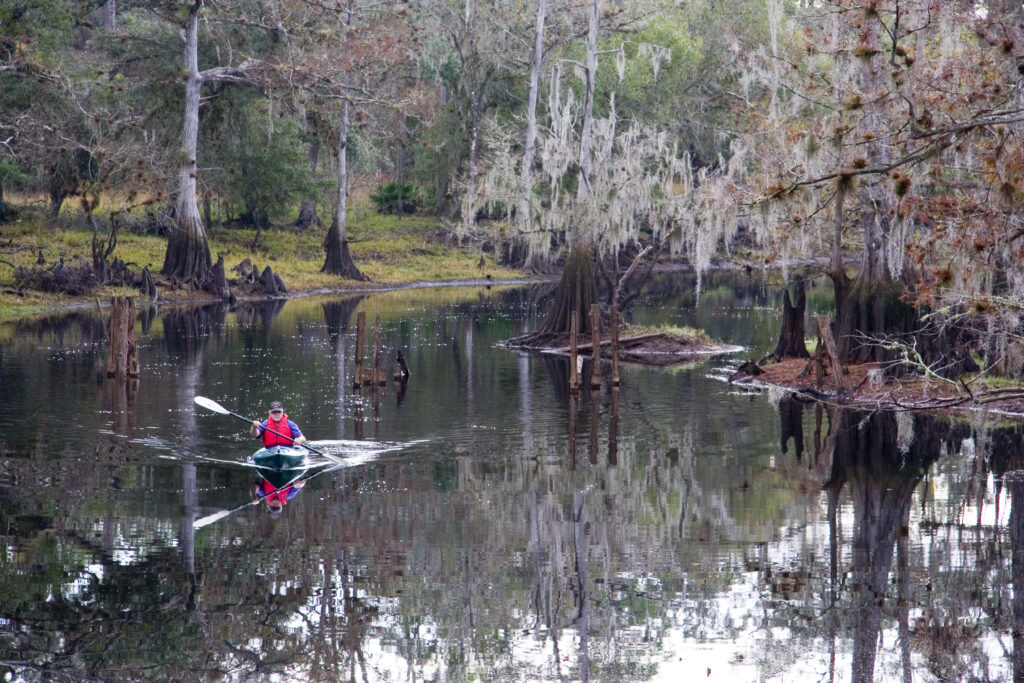Connect to Nature and History at Fisheating Creek Wildlife Management Area

Billowy clouds float over a wild, cypress-lined creek. Alligators sun along swampy shores while stark white egrets and ibis glow against dark water. As you make your way along the creek, every bend offers a new discovery. A banded water snake stealthily crosses the water in search of an evening meal. A swallow-tailed kite soars overhead, its forked tail clear against the sky. Flowering air plants add a splash of color to the cypress and oaks lining the shore.
Fisheating Creek snakes its way through 40 miles of cypress swamps, oak hammocks and marsh before spilling into Lake Okeechobee, its dark waters giving rise to wildlife-rich landscapes and fascinating history along the way. The creek has been a place of importance to the people of South Florida for more than 2,500 years and today the Fisheating Creek Wildlife Management Area (WMA) in Glades County offers abundant opportunities for people to enjoy its beauty and bounty.

Experience Something Unique
The tea-colored waters of Florida’s blackwater rivers are not unique to Fisheating Creek, but this particular creek is home to sights that can’t be found anywhere else in Florida.
A Special Roost
Fisheating Creek WMA is a winter refuge for wading birds, migratory white pelicans and waterfowl. In April and May, warblers and other songbirds nest and raise young all along the creek. In summer, the nearby wetlands host the largest roost of swallow-tailed kites in Florida—up to 3,000 birds and more than half the North American population—as they prepare for an arduous 5,000-mile journey to southern Brazil and eastern Paraguay in August. These highly social birds are often seen soaring and hunting in groups throughout the WMA.
A Place in History
From the Fort Center trailhead area off County Road 78, an interpretive history trail entices visitors to travel back through time to explore the colorful story of the creek’s inhabitants and the unique findings made here. The Fort Center site consists of mounds, ponds and circular ditches built more than 2,000 years ago. At the site, bundles of human remains were found along with the remnants of a wooden platform decorated with wooden carvings of wildlife including life-sized cats, bears, foxes, eagles and a beautifully preserved wooden carving of an otter running with a fish in its mouth. Anglers and hunters today can experience a connection with these Floridians of the past who subsisted off the land while fishing for bass, crappie, catfish and bream and hunting hog, deer and Osceola turkey in other parts of the WMA.

A Paddling Adventure
The WMA offers unique and memorable journeys by canoe or kayak through Fisheating Creek’s twists and turns. Paddlers will find miles of undeveloped landscapes that remain the domain of alligators, ibis, herons, egrets, wood storks, roseate spoonbills, hawks, ospreys and owls. Many spots have local lore and history attached to them, such as the famous Memorial Cypress tree.
A Dark Sky
Fisheating Creek WMA is one of the few places left in southwest Florida unmarred by artificial lights, which affect our night vision and dull out the nighttime view of constellations and the Milky Way galaxy. An overnight stay at the Fisheating Creek Outpost campground off U.S. 27 in Palmdale offers a beautiful and rarely seen view of the night sky for astronomy enthusiasts and stargazers of all ages.